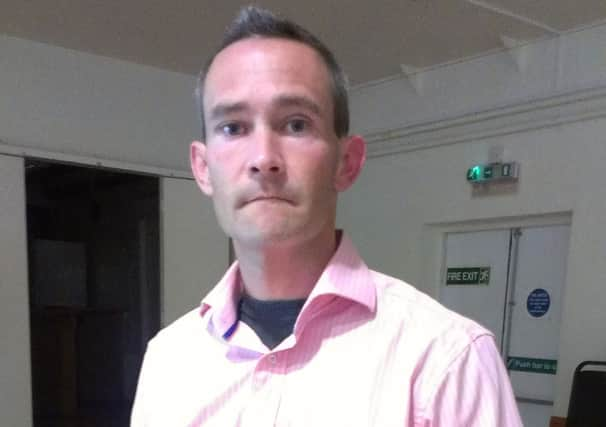‘Fracking’ fears brought up at packed public meeting


Concerned residents filled Wisborough Green Village Hall for a meeting called by Stuart Clark on Monday, .
Celtique Energie plans to build an exploratory well site on land at Northup Copse, to the north-west of Wisborough Green. Using this, the company would test for the presence of commercially viable oil or gas reserves in the area.
Advertisement
Hide AdAdvertisement
Hide AdAt a public exhibition in Kirdford last month, CEO Geoff Davies said they want to test for conventional fossil fuel deposits, which they would not extract by fracking. However, he did not rule out the prospect of applying for permission to frack if deposits of shale rock are found.
Laura Ward told the meeting that traffic to and from the site would have to travel along the A272 to Wisborough Green, then along country lanes and over Boxall Bridge.
“This could involve up to 1,000 lorries, just for the exploratory site,” she said.
“Celtique Energie have stated that they believe that the road is suitable, and that Boxall Bridge is suitable, for this level of traffic.”
Advertisement
Hide AdAdvertisement
Hide AdPetra Billings of Sussex Wildlife Trust said the fields and copses in the area include a number of sites which are recognised at national or European level as ecologically important. Six bat species live in the area, including the rare barbastelle bat.
The barbastelle lives in ancient oak woodlands - such as The Mens near Wisborough Green - and tends to fly along regular routes, following the course of hedgerows.
“One of these flightlines comes north from The Mens, right up to the eastern side of the field where the drilling’s going to be,” she said. “Clearly a drilling rig within a few yards of the nature reserve, with the lights and the noise, is going to interfere with the wildlife.”
Stuart Clark raised the concern that exploratory drilling could be the prelude to a fracking operation - something which could be much harder to oppose once the area had already been drilled. “If this initial application goes through, they’ve got a foot in the door, and all of the logistical and environmental matters have been covered,” he said.
Advertisement
Hide AdAdvertisement
Hide AdFracking, officially known as hydraulic fracturing, involves pumping a mixture of water, sand and chemicals, all under high pressure, into a gas or oil well. The fractures this creates allow gas and oil to flow into the well, even from rock which would be hard to mine by conventional methods.
The process requires large quantities of water - a particular concern in the light of recent water shortages - and has been widely blamed for cases of water contamination in the US. Mr Clark said that most of the region’s water comes from the aquifers, and that the proposed drilling site is on top of one of the aquifers.
Other worries include dispoal of used water from the well, and air pollution from methane given off during the fracking process.